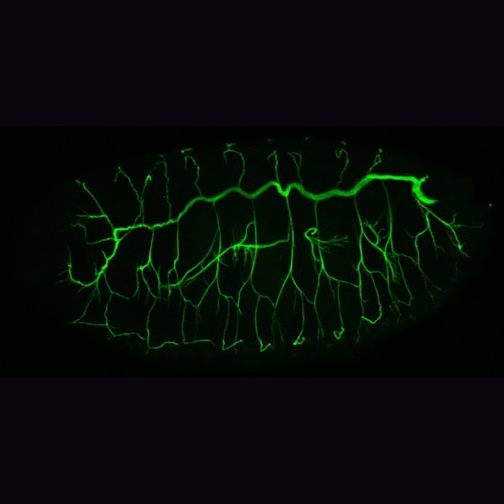 The Whitney Laboratory for Marine Bioscience
The Whitney Laboratory for Marine Bioscience

The Evenings at Whitney Lecture Series hosted by the University of Florida Whitney Laboratory returned on May 19, 2016, at 7 p.m. with the program titled Building Body Parts: Lessons Learned from Simple Critters. Deborah Andrew, professor of cell biology at Johns Hopkins University, shared the findings from her lab’s studies of the fruit fly salivary gland and how these discoveries are relevant to the development and specialization of human organs. She also discussed how these discoveries can be leveraged to compromise mosquito salivary glands as one approach to blocking transmission of malaria and other mosquito-borne diseases, such as Dengue and Zika. The free lecture was presented at Lohman Auditorium located at 9505 Ocean Shore Blvd., on the Whitney Laboratory campus.
Tube formation is a process required to sustain life in all multicellular organisms. Tubular organs in humans include the lungs, vascular system, digestive and excretory systems, as well as secretory organs such as the pancreas, salivary glands and mammary glands. Andrew’s lab studies the fruit fly trachea and salivary gland as model systems for tube formation to learn how organs are first specified, how they achieve their final correct size, shape and positions in the body, and how organs produce the right amounts and types of substances to function optimally.
Andrew grew up in Titusville, Fla., and attended the University of Central Florida as an undergraduate. She majored in fresh water ecology due to her love of being outdoors. But, upon taking her first course in genetics, she became enamored with fruit flies, which she has continued to study ever since. She worked with homeotic mutations in the laboratory of David Kuhn for her master’s degree from the University of Central Florida. Her doctoral training was in the laboratories of Bruce Baker and James Posakony at the University of California, where she studied sex determination in fruit flies. As a post-doctoral fellow, she worked with Matthew Scott, first at the University of Colorado and, subsequently, at Stanford University. In Scott’s lab, Andrew began studies on fruit fly organ development, which she has continued since her appointment as an assistant professor in the cell biology department at The Johns Hopkins University School of Medicine in 1993. She was promoted to associate professor in 1999 and full professor in 2004.
About The Evenings at Whitney
The Evenings at Whitney Lecture Series focuses on current science topics or ongoing research at Whitney Laboratory. Speakers are recognized experts in their fields and encourage questions and discussion. Lectures are presented the first or second Thursday of each month, September through May, in Whitney’s 260-seat Lohman Auditorium. Lectures, including parking, are free and open to the public. Reservations are not needed.